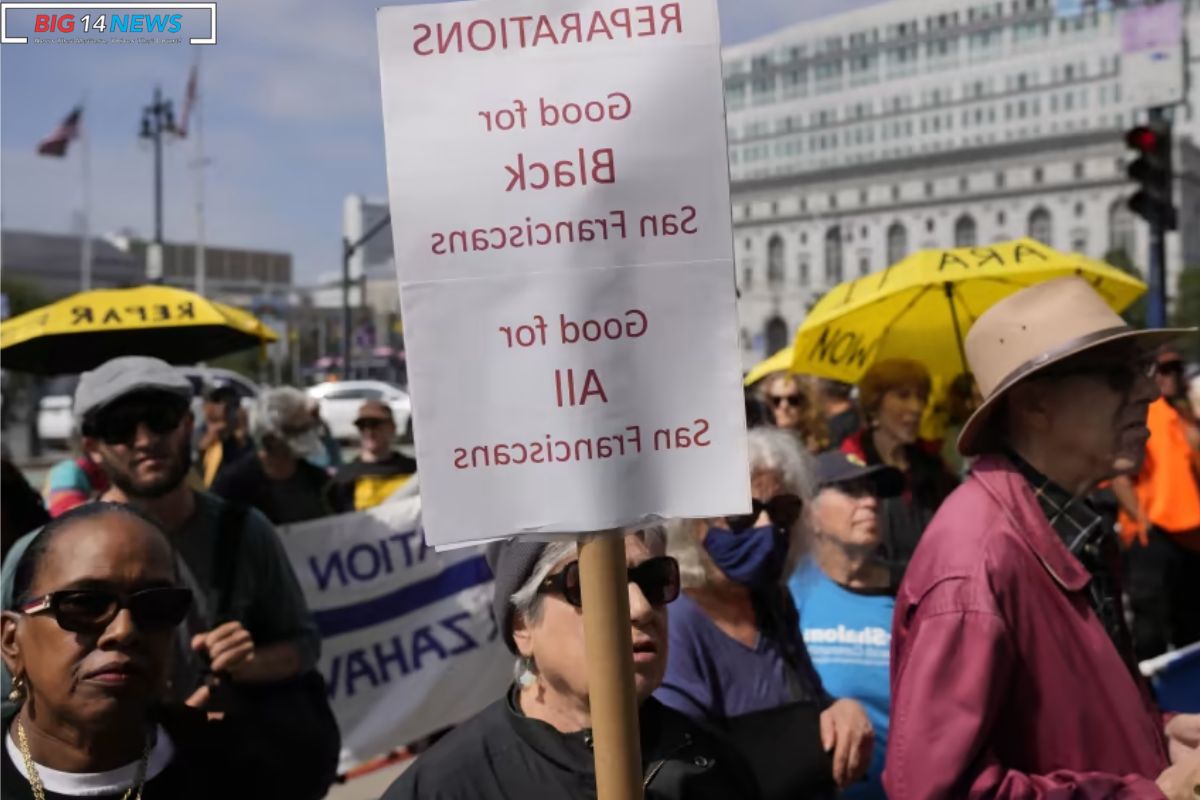San Francisco Reparations Debate: In a progressive city, efforts are underway for financial reparations for racial disparities. San Francisco is safe for people with low incomes. The city’s history requires change.
On Tuesday, the SF Board of Supervisors made a decision impacting Black lives and the wealth gap. The pay plan change was influenced by the African American Comp Advisory Committee. The aim was to correct errors. Giving $5 million to each eligible adult was risky. This is a big step towards funding Black people in the city.
Despite the city’s $4M funding for a pay office, its stance on the group’s ideas remains to be determined. Beliefs: paying individuals, aiding Black families with home purchases, offering additional funds for economic disparities. Including a Black university is part of the plan. This emphasizes freedom and knowledge.
Justice advocates seek compensation for past injustices against Black individuals. Issues: unpaid work, land takings, discriminatory policies in housing and education access. In SF, the African-American community fights for justice and political opportunities.
Before the meeting, 200+ people gathered at City Hall to support the changes. Rev. Brown urged quick payment. The community values addressing past wrongs for racial equality and healing.
Not everyone agrees. Critics say plans violate the Constitution and hurt the city budget. In 2018, Richie Greenberg criticized the city’s settlement plan as wasteful and “illegal.” This perspective focuses on issues and debates.
San Francisco addresses racial gaps in slavery’s effects and reparations. Local groups are making changes, but California’s first settlements task force has finished its work and shared ideas with politicians. The results will impact the future of Black people in SF and the justice movement nationwide.
Our Reader’s Queries
What are the reparations recommendations for San Francisco?
The committee proposes assisting Black families in purchasing homes, boosting household incomes, and establishing a historically Black university. Advocates assert that Black individuals deserve restitution for uncompensated labor, land seized through eminent domain, and discriminatory policies that hindered their ability to obtain mortgages and education.
Did Native Americans receive reparations?
Until 1978, the commission disbursed $1.3 billion, approximately $1,000 per tribal member, as reported by the New York Times. In 1980, the Supreme Court mandated the United States to compensate the Sioux nation with over $105 million for wrongfully seizing their land.
What is the main argument in the case for reparations?
Ta-Nehisi Coates’ essay “The Case for Reparations” published in the Atlantic in 2014 has been recognized as the “Top Work of Journalism of the Decade.” The essay skillfully weaves together historical accounts from the past 150 years post-slavery to make a compelling case for the owed compensation to African Americans for their mistreatment in the United States.
What is the draft reparations plan in San Francisco?
In 2019, the San Francisco branch of the NAACP boldly suggested to the Board of Supervisors that the City and County of San Francisco should compensate Black residents for years of neglect and forced relocation.

